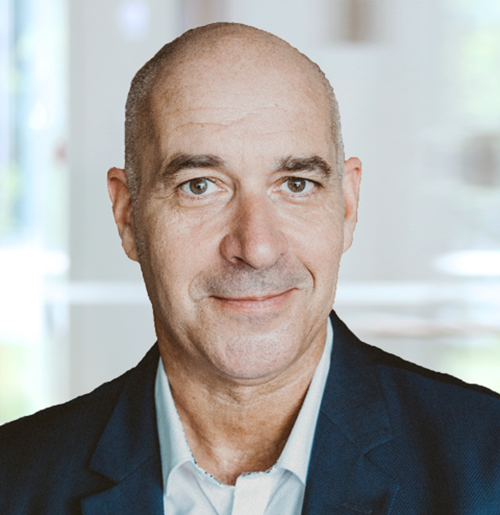Guido Sander, General Manager of Middle East for Roche Diagnostics, explains how the company is striving for a world where collaboration leads to improved patient outcomes and ensures everyone has access to timely diagnostic solutions.

The critical role of diagnostics
Diagnostics are fundamental to quality healthcare, recognised globally as an enabler of system transformation and better health outcomes for patients. In areas including cancer, cardiovascular disease, and infectious disease, diagnostic tests help ensure patients benefit from the right treatment at the right time.
Despite this, almost half of the world’s population (47%) does not have access to diagnostic testing, creating a significant barrier for healthcare professionals to deliver timely and accurate treatment.
With the rise of noncommunicable diseases such as diabetes, cancer and heart disease, healthcare systems in the Middle East are not exempt from challenges. Despite substantial advances in healthcare provision across the region, transformation in healthcare systems is not keeping pace with industry innovation, leading to wide disparities in access to healthcare between countries in the Middle East.
The Middle East is not the only region where these challenges persist. Low-to-middle income countries (LMICs) are often the worst affected by health inequalities, with large diagnostic gaps leading to delays in treatment and premature deaths.
Change starts with innovation
Innovation in diagnostic technology has played a crucial role in accelerating clinical decision making, helping healthcare professionals to detect the risk of the disease and how it might progress, as well as identifying the best possible treatment decisions for patients.
However, innovation in healthcare is only realised when it reaches the patients who need it. Complex factors such as financing, disease awareness, infrastructure and human capital challenges all play a role in the ability to deliver innovations to the people who need them.
Without collaboration, and acknowledgement of the need for multiple partners, with different skills and expertise, to come together in finding solutions, we will not make progress in the delivery of solutions to our populations.
Healthcare challenges cannot be solved alone
We know we cannot take on healthcare’s toughest challenges alone. As leading industry innovators, we must be the convener of conversations with partners to help share the experiences, resources and perspectives needed to make a positive difference.
One particular example of successful partnership working is through the strengthening of lab systems. This has created significant opportunities to expand training opportunities and increase access to testing capabilities through workflow management, which delivers greater efficiencies and ultimately improves patient outcomes.
Last year, for example, Roche expanded collaboration with the U.S Centers for Disease Control and Prevention (CDC) to strengthen laboratory systems in countries across Africa, Eastern Europe, Central Asia and the Western Hemisphere, which have been affected the most by the HIV and tuberculosis epidemics. The provision of diagnostic testing, together with the critical role of partnership working, brought about greater access to life-saving treatment.
To ensure patients have access to timely and accurate diagnostics, we must ensure they are supported throughout the patient journey. Here in the Middle East, we are working to deploy new-style laboratories located in healthcare facilities within the region.
Instead of blood being taken in a hospital cubicle, partitioned by curtains, and then sent to a lab, a small but growing number of hospitals are now investing in centralised in-house diagnostic facilities which patients are invited to for the testing itself, and where their tests are then processed on-site.
The most modern of these facilities offer wholly private rooms for the tests – ensuring patient privacy – co-ordinators to answer patient questions and other patient-centred facilities which make for a more relaxing experience.
These laboratories are the result of holistic collaboration between multiple partners across the design of the laboratory, the diagnostic technology, the digitisation of testing processes and the staff training and structuring, that melds the best possible technical outcomes with the overall patient experience.
So, where do we go from here?
With populations growing and people now living longer but with more complex health conditions, we must prioritise partnership working to build resilience into healthcare systems. We are working with policymakers in the region to enable better patient outcomes, aligning with Saudi Arabia’s Vision 2030 and the UAE 2030 Vision, which strive to create a future for populations to live longer, healthier lives.
The collaborative efforts of private partners, researchers, clinicians, and the integration of technology are paving the way for a more nuanced approach to tackling the complexities of our global healthcare challenges, and I look forward to how this will take shape in the coming months and years.
At Roche, we are working towards a world where collaboration drives better patient outcomes, and where everyone has access to timely diagnostic solutions – regardless of who they are or where they live.




